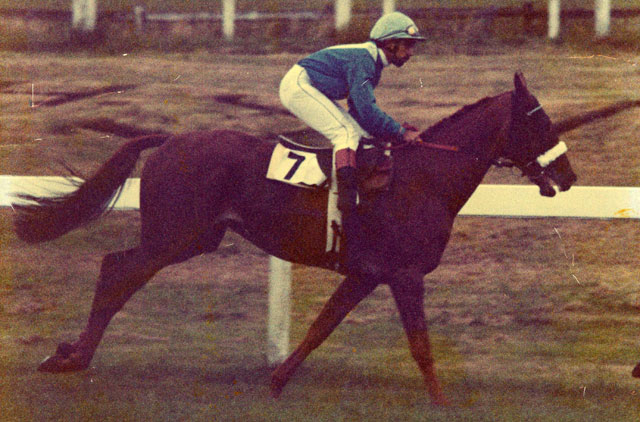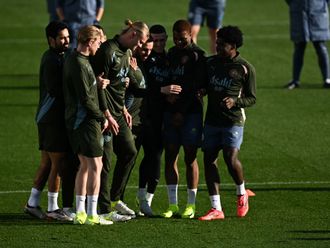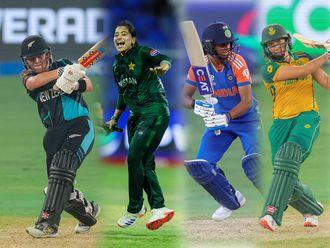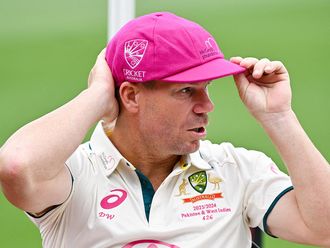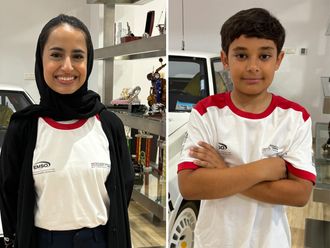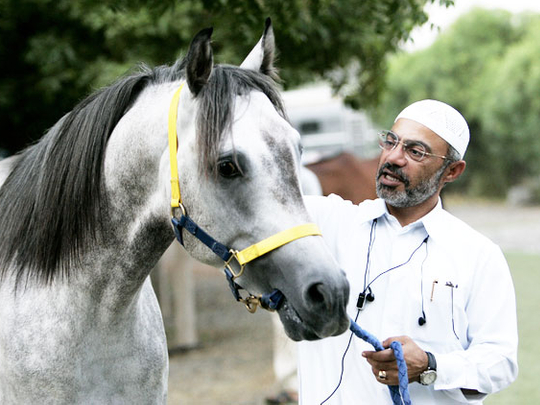
Dubai: It's not everyday that you get to sit down and have a lively and enlightening conversation with a pioneering jockey turned avid racehorse trainer — especially when you've been a fan of the sport for as far as you can remember.
So, when I got the chance to meet Aziz Al Redha, one of the greats of horse racing in the UAE, the encounter gave me an understanding of just how important a role he has played given the context and prominent position that the sport now enjoys.
It did not take me long to realise that even after 30 odd years in the business, Al Redha is just as obsessed with horses, and on winning, as he ever was. After we talked shop about the "good old times" and the growth that the sport has benefited from, he answered some burning questions with anecdotes and witty comebacks.
Comfort levels
We began to share a bond and it helped strengthen my comfort levels at the risk of being spontaneous. This provoked me to explore his love for the sport of endurance, which seems an unusual destination for somebody who was passionately involved in racehorses.
"This is entirely different to what I did for 20 years in racing. Now I'm running my own small yard mainly for endurance," he said. "I got into endurance out of coincidence, by just playing around with some retired race horses. As the sport was becoming popular in the UAE I thought I'll have a go and learn something. I had a trial and error attitude to it all. But alhamdulilla [All praise is due to Allah] we've been pretty successful.
"I train mainly for my daughter Laila who is a good rider and a serious [competitor]. We — my wife and I — taught her since she was three. She's done dressage and jumping before she got into endurance, so she has the right balance, the handling and the feel," Al Redha explains. "Endurance doesn't teach you that, nor does a riding school. To be a good endurance rider you have got to be relaxed and you can only be relaxed if you are confident."
It was quite clear that Al Redha can talk about what makes a good horseman for hours, but I was wondering what his thoughts were about the emergence of super-talented Emiratis in flat-racing, his first love.
"I think the success that Ahmad Ajtebi and trainers like Ali Rashid Al Raihe and Musabah Al Muhairi have achieved is good for the sport," he said.
"I've always tried to encourage people to get into horse racing but it hasn't been easy. In the UAE it has always been dominated by expatriates, I'm not going to call them foreigners, because they are my friends and have also played a prominent role. But at the end of the day you look out for your own. For years we did not have somebody that was keen enough to become a jockey, or trainer because it is hard work to handle the pressures of racing. Not just race riding on the day, but actually buying into the lifestyle of racing," Al Redha added.
"But finally we've got a jockey [Ajtebi] who has managed to come through and come through good. I hope he stays in there and can sustain it. As long as he maintains his weight, learns from others and corrects his mistakes he should make it to the top."
Al Redha himself, was one of the feel good stories of the 80s, as he experienced all the highs and lows of horse racing. He made history by becoming the first Emirati jockey to ride a winner outside the country, when he won an international race for amateurs in Bahrain in May, 1983. Two months later he repeated the feat at Doncaster, England and the following year he rode a memorable winner at Ascot.
His burgeoning career was abruptly cut short by injury, forcing him to take up a position training racehorses instead. He saddled over 25 winners in three seasons before ultimately switching to training endurance horses.
How has he dealt with the transition from riding in two-minute long races on the flat to sitting on the back of a horse for five to six hours in an endurance race?
"In this sport you have good days and you have bad days. The bad days we learn from and the good days we remember," he says philosophically.
So what are his best memories of the "good" days?
"Perhaps winning a race in just a track in the desert," he replied instantly. "It must have been 1974 and there were just six or seven of us including His Highness Shaikh Mohammad Bin Rashid Al Maktoum, Vice-President and Prime Minister of the UAE and Ruler of Dubai.
"I remember I was really scared but it was an awesome experience to ride with His Highness as he was a complete horseman. Somehow, perhaps because I was so light, I won! That was absolutely the start of real passion for galloping, for speed and for winning."


